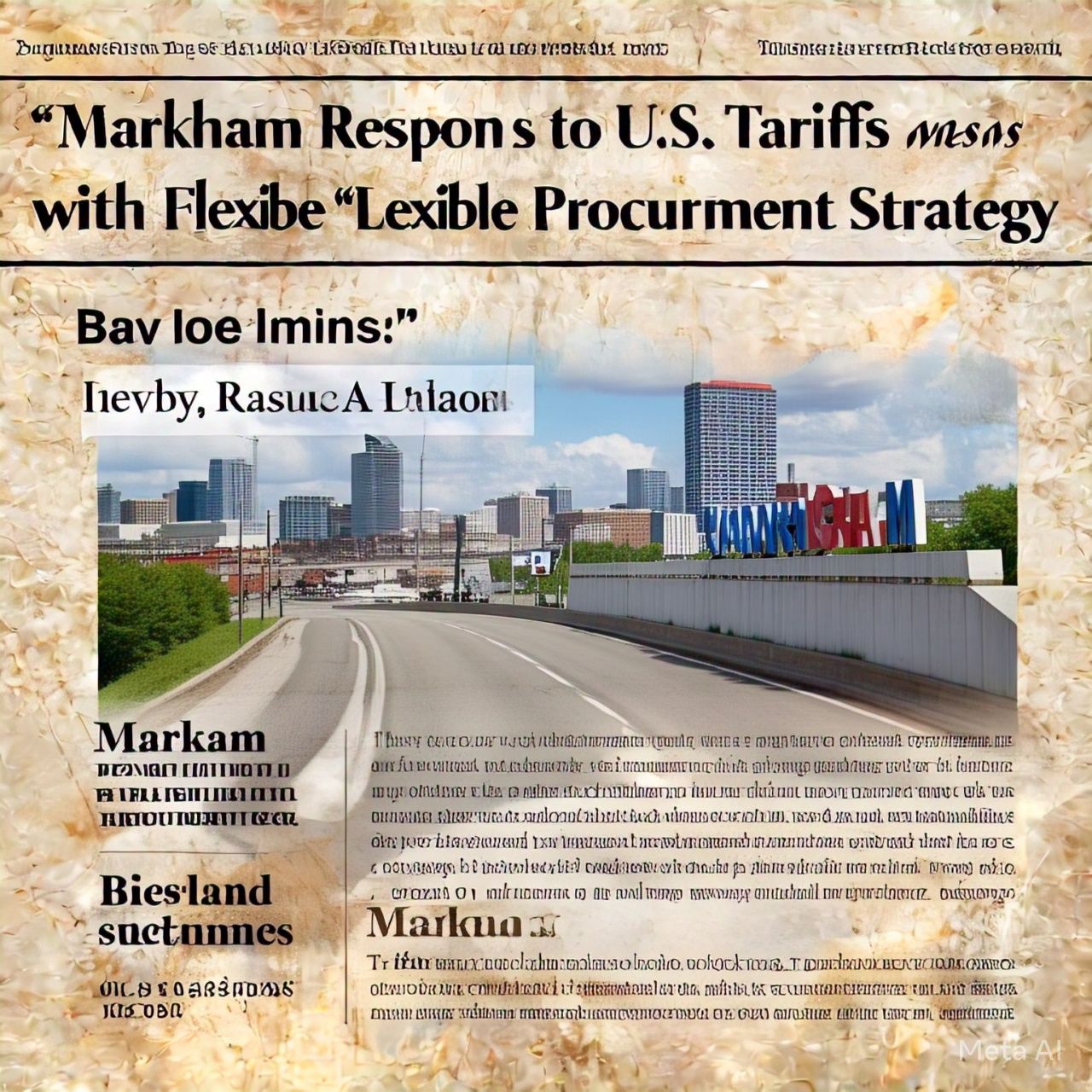
As cross-border tensions escalate, the City of Markham is rolling out a new procurement policy designed to support Canadian businesses while maintaining compliance with international trade agreements. The strategy comes in direct response to a wave of U.S. tariffs introduced in early 2025.
These tariffs include:
-
25% duties on Canadian steel, aluminum, and automobiles
-
10% levies on energy products and select potash exports
-
Additional tariffs targeting goods outside the scope of the Canada-United States-Mexico Agreement (CUSMA)
While some of the more aggressive tariffs have since been moderated, the broader impact has unsettled both Canadian exporters and U.S. trade partners.
Supporting Local, Staying Compliant
During a recent Markham council meeting, the idea of banning U.S. firms from city contracts sparked debate.
“I cannot support banning U.S. companies that have a Canadian presence,” said Mayor Frank Scarpitti. “U.S. investment supports over 22,000 jobs in Markham. Exclusion could hurt more than help.”
Markham’s economic ties to the U.S. run deep. In 2023, the city exported $2 billion in goods to the U.S., which made up 71% of its international exports. It also imported $6.7 billion in goods from the U.S., representing about a third of all imports.
New Procurement Guidelines
To help Canadian vendors without violating trade rules, council approved a series of procurement reforms designed to offer flexibility with preference. Here’s how the Buy Canadian strategy will work:
-
Procurement thresholds increased: Staff can now award contracts directly to Canadian vendors without public tenders—up to $133,800 for goods/services and $334,400 for construction, aligned with Canadian Free Trade Agreement limits.
-
Three quotes rule: For eligible purchases, three competitive quotes from Canadian vendors will suffice.
-
Under $25,000 purchases: Staff will be encouraged to buy Canadian-made products where feasible.
-
Mid-tier contracts: For purchases below Canada-EU CETA thresholds, evaluations may favor Canadian suppliers if it provides better value and quality.
However, flexibility remains a cornerstone. Certain specialized items—like IT hardware, custom software, or specific public works materials—may only be available through U.S. firms or Canadian distributors sourcing from the U.S.
“Buying Canadian is the goal,” Scarpitti added, “but we must recognize that some U.S.-based companies help fuel our economy right here in Markham. We shouldn’t shut them out.”
Private Sector Already Feeling the Pressure
While 60% of Markham’s jobs are in knowledge-based industries, largely unaffected by tariffs, the manufacturing sector—though only 7% of the workforce—is highly vulnerable. Of the city’s 658 exporting firms, many are reporting significant disruptions.
Initial employer feedback includes:
-
Job loss projections of 25–40% in tariff-sensitive firms
-
Delayed expansions and hiring freezes
-
Feasibility studies on entering new markets or moving operations
-
Reactivation of COVID-19 contingency plans
Rising Costs and Municipal Impact
Markham also anticipates cost increases for infrastructure and capital projects, as tariffs inflate the price of imported materials. Procurement staff expect some contractors may seek price adjustments on existing deals, which will be reviewed individually with oversight from the city solicitor and treasurer.
Despite the challenges, Markham’s balanced approach aims to protect local jobs, foster investment, and navigate rising trade uncertainty without overstepping international obligations.